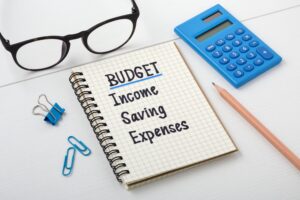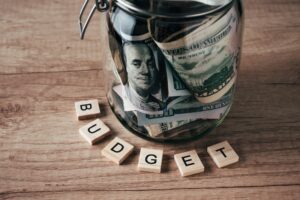Retirement is a significant life event that many look forward to, but it comes with its own challenges, especially financially. Being ready to retire isn’t just about reaching a certain age; it involves meeting key financial milestones that ensure you can enjoy your golden years without financial worry. Here, we explore nine essential financial milestones to achieve before you decide you’re ready to retire. These goals will help you assess your readiness and ensure a solid financial foundation for the next phase of your life.
1. Debt-Free Living
One of the most crucial financial milestones before retirement is eliminating high-interest debt, particularly credit card debt and personal loans. Carrying debt into retirement can significantly strain your finances, as fixed retirement income might not cover debt repayment and living expenses. Ideally, your mortgage should also be paid off, allowing you to live more freely without the burden of monthly loan payments. This milestone ensures that your retirement savings and income are devoted to your living expenses and enjoyment rather than paying off debts.
2. Adequate Retirement Savings
Ensuring you have enough saved to cover your retirement years is critical. Financial experts often recommend having at least 10-12 times your final pre-retirement salary saved. This should ideally be a mix of retirement accounts like 401(k)s, IRAs, and other savings or investment accounts. Regularly reviewing your retirement plan with a financial advisor can help adjust your savings goals based on your expected lifestyle, inflation, and any potential medical costs.
3. Healthcare Planning
Healthcare costs in retirement can be significant. Having a comprehensive healthcare plan, including Medicare and supplemental insurance, is crucial. Consider the costs of long-term care insurance, which can cover expenses not included in regular health insurance. Being prepared for unforeseen health issues by having this coverage in place can prevent significant financial strain later.
4. A Tested Retirement Budget
Before you retire, test out a retirement budget. Try living on your expected retirement income for several months while still working. This will help you adjust your spending habits and ensure your budget is realistic based on your retirement income. This trial period can reveal unexpected costs and help you refine your budget before you fully commit to retiring.
5. Diverse Income Streams
Relying solely on savings or Social Security can be risky. Having multiple income streams can provide extra security. Consider rental properties, dividends from investments, or a part-time job if you want to keep working. This diversification helps buffer against poor market performance that could affect your primary retirement funds.
6. Updated Estate Plan
An updated estate plan is vital as you approach retirement. This includes having a will (or revising your current one), designating powers of attorney, and potentially creating trusts. These documents should be reviewed and updated to reflect your current wishes and ensure your assets are distributed according to your plans without legal complications.
7. Long-Term Investment Strategy
Having a long-term investment strategy that shifts from accumulation to income generation is crucial. This strategy should be less about aggressive growth and more about preserving capital and generating a steady income. It is essential to discuss your investment strategy with a financial advisor to ensure it aligns with your risk tolerance and retirement timeline.
8. Social Security Strategy
Deciding when to start taking Social Security benefits is a significant decision. Although you can begin collecting benefits at age 62, delaying benefits until your full retirement age or even age 70 can significantly increase your monthly payments. Evaluate your health, financial needs, and life expectancy to make an informed decision that maximizes your benefits.
9. A Plan for Leisure and Lifestyle Goals
Retirement is also about enjoying the life you’ve worked hard to build. Whether it’s traveling, hobbies, or spending time with family, make sure you plan how you want to spend your time. This includes budgeting for activities you enjoy and considering any potential costs associated with these pursuits.
These Financial Milestones Could Mean You’re Ready to Retire
Achieving these financial milestones can make the difference between a stressful retirement and a fulfilling and secure one. Being ready to retire means more than just stopping work; it involves meticulous planning and preparation to ensure your retirement years are as enjoyable as possible. Each milestone is a step toward creating a stable and rewarding retirement experience, giving you the peace of mind to fully enjoy this new chapter of your life.
Read More:









































